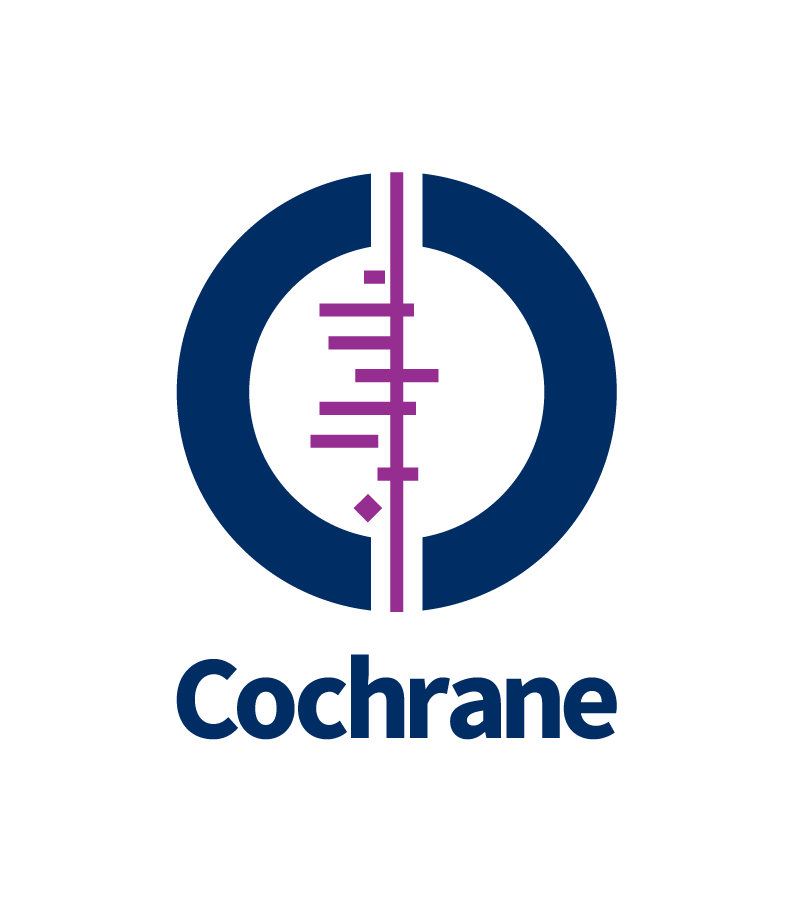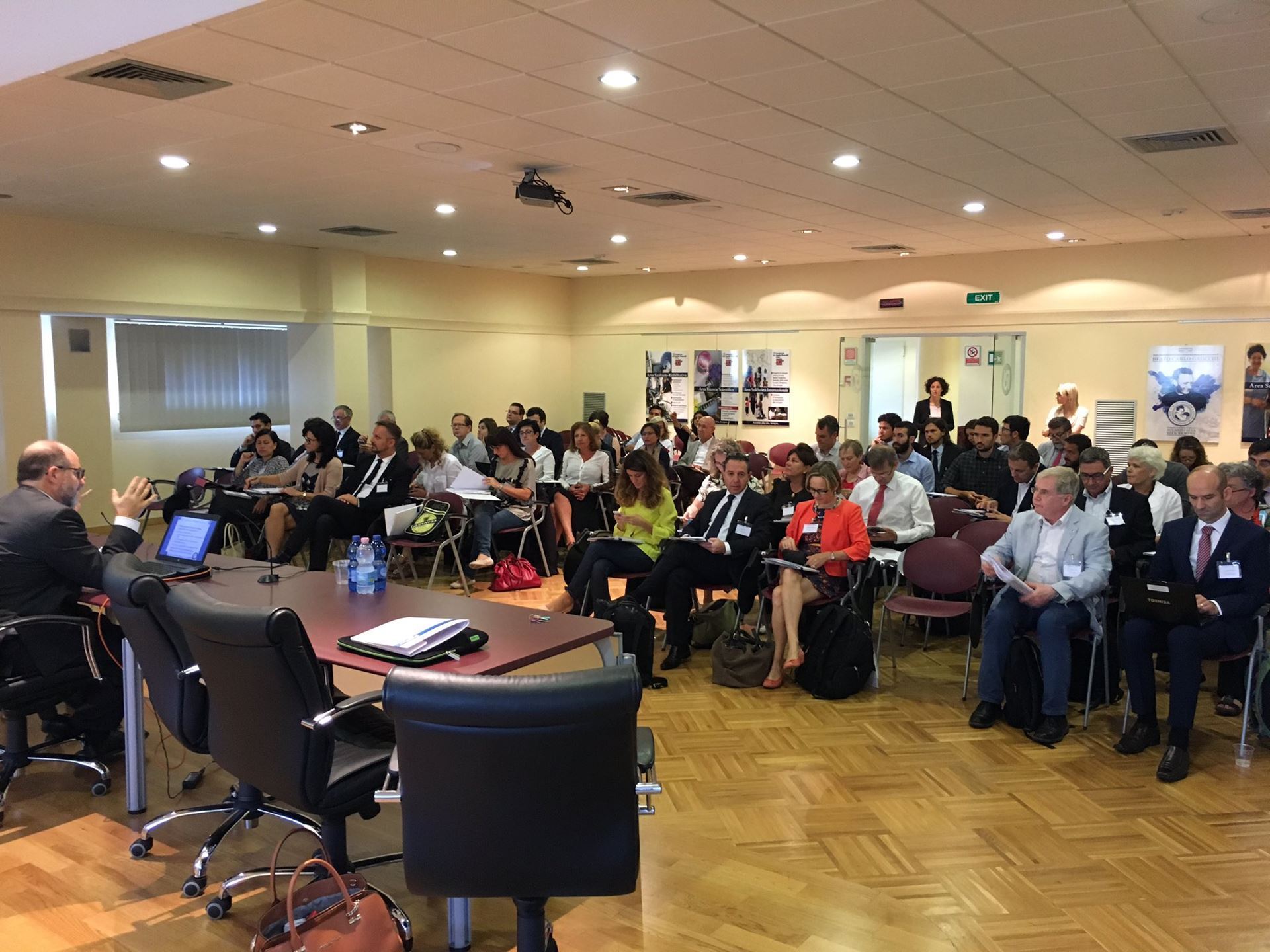 This week I have been in the beautiful city of Brescia, Italy, attending a Formal Exploratory Meeting to help finalise a proposal for a new Field in Cochrane – one focussing on clinical rehabilitation. This meeting has been the culmination of two years of work, and is the last step required before the submission of an Action Business Plan to Cochrane. The Cochrane Steering group will formally consider our proposal at the 24th Cochrane Colloquium in Seoul next month, after which – if the proposal is accepted – Cochrane Rehabilitation will be launched. So what is this all this about?
This week I have been in the beautiful city of Brescia, Italy, attending a Formal Exploratory Meeting to help finalise a proposal for a new Field in Cochrane – one focussing on clinical rehabilitation. This meeting has been the culmination of two years of work, and is the last step required before the submission of an Action Business Plan to Cochrane. The Cochrane Steering group will formally consider our proposal at the 24th Cochrane Colloquium in Seoul next month, after which – if the proposal is accepted – Cochrane Rehabilitation will be launched. So what is this all this about?
What is Cochrane?
 Cochrane (previously known as ‘The Cochrane Collaboration’) is a global, independent, not-for-profit organisation, which is set up to gather and summarise the current best evidence to guide healthcare decision making. Cochrane has been running for 20 years and is comprised of Review Groups, Centres, Method Group, and Fields and Networks. The Review Groups are typically organised around diseases or health disorders and are in charge of the work required to prepare and maintain systematic reviews. Cochrane Centres are the regional branches of Cochrane, and are primarily responsible for providing local support for Cochrane contributors. Cochrane New Zealand is one example of a Cochrane Centre. Method Groups focus on specific issues to do with development and synthesis of evidence in healthcare. The job of a Cochrane Field is to cross boundaries between the various Cochrane groups – so often Fields focus on broader dimensions of healthcare, such are primary care, ageing, children’s health, or, in the case of our proposal, rehabilitation. More recently, Cochrane has indicated a key part of the work of fields will be knowledge translation – making the information about evidence based practice generated in Cochrane more accessible to health funders, providers, and consumers worldwide.
Cochrane (previously known as ‘The Cochrane Collaboration’) is a global, independent, not-for-profit organisation, which is set up to gather and summarise the current best evidence to guide healthcare decision making. Cochrane has been running for 20 years and is comprised of Review Groups, Centres, Method Group, and Fields and Networks. The Review Groups are typically organised around diseases or health disorders and are in charge of the work required to prepare and maintain systematic reviews. Cochrane Centres are the regional branches of Cochrane, and are primarily responsible for providing local support for Cochrane contributors. Cochrane New Zealand is one example of a Cochrane Centre. Method Groups focus on specific issues to do with development and synthesis of evidence in healthcare. The job of a Cochrane Field is to cross boundaries between the various Cochrane groups – so often Fields focus on broader dimensions of healthcare, such are primary care, ageing, children’s health, or, in the case of our proposal, rehabilitation. More recently, Cochrane has indicated a key part of the work of fields will be knowledge translation – making the information about evidence based practice generated in Cochrane more accessible to health funders, providers, and consumers worldwide.
In New Zealand, everyone can freely access all resources within Cochrane if you enter the Cochrane website via the Ministry of Health. To do this, go to the part of the Ministry’s website on Cochrane; then click on the link on the right-hand side to ‘Access the library’.
What is Cochrane Rehabilitation?
 Development of a group within Cochrane dedicated to rehabilitation was an idea initially proposed by the Evidence Based Medicine Committee of the European Society of Physical and Rehabilitation Medicine. Since then the idea has garnered support from a number of national and international organisations, include the International Society of Physical and Rehabilitation Medicine. Funding to help establish the new Field has come from the Don Gnocchi Foundation and University of Brescia, so the headquarters of Cochrane Rehabilitation will begin in Rovato - a province in Brescia, Italy.
Development of a group within Cochrane dedicated to rehabilitation was an idea initially proposed by the Evidence Based Medicine Committee of the European Society of Physical and Rehabilitation Medicine. Since then the idea has garnered support from a number of national and international organisations, include the International Society of Physical and Rehabilitation Medicine. Funding to help establish the new Field has come from the Don Gnocchi Foundation and University of Brescia, so the headquarters of Cochrane Rehabilitation will begin in Rovato - a province in Brescia, Italy.
The aim of the Field is to act as a bridge between Cochrane and rehabilitation stakeholders (in the broadest sense of the word). The concept of a ‘bridge’ includes the notion of traffic going both ways. In one direction, Cochrane Rehabilitation intends to act as a conduit for making evidence generated by Cochrane on best practice in rehabilitation more understandable, more meaningful, and more accessible for health professionals, patients, and their families. The sort of ideas already discussed here include the possible development of an online eBook summarising information on different aspects of rehabilitation from Cochrane reviews, the use of newsletters and social media to keep people updated on evidence in rehabilitation medicine, and the provision of training on how to make best use of the resources about rehabilitation available through Cochrane. In the other direction, Cochrane Rehabilitation intends to provide a means by which rehabilitation researchers, professionals, and consumers can actively contribute to the work and thinking of Cochrane as an organisation. This could involve, for instance, active involvement of the Field in discussions within Cochrane regarding new ways to generate, interpret, and synthesise research evidence to better address the challenges of research in rehabilitation contexts. These challenges include issues such as the complexity of rehabilitation intervention that frequently involve multiple components, individualisation of treatment, require behaviour changes from both patients and health professionals, and which may influence a range of different types of health outcomes.
What is a Formal Exploratory Meeting?
 The Formal Exploratory Meeting held this week in Brescia was a necessary step in the establishment of a new Cochrane Field. Cochrane requires these meetings to be held in a certain way – for instance it could not be a meeting that is simply added on to an existing international professional conference. A degree of commitment to discussing and developing a proposal for a new Field is required. Prior to the meeting a draft Action Business Plan was written and circulated to people attending, including Mark Wilson, the CEO of Cochrane. The meeting served as a way to confirm support from the rehabilitation community worldwide regarding the goals, direction, and organisation of the proposed Field. In this regard, the meeting was a huge success. More than 190 people from 48 countries worldwide have so far expressed interest in becoming members in one capacity or another with this new Field, should it be established. Over 40 of these people, representing 19 countries, were able to attend the meeting in Brescia.
The Formal Exploratory Meeting held this week in Brescia was a necessary step in the establishment of a new Cochrane Field. Cochrane requires these meetings to be held in a certain way – for instance it could not be a meeting that is simply added on to an existing international professional conference. A degree of commitment to discussing and developing a proposal for a new Field is required. Prior to the meeting a draft Action Business Plan was written and circulated to people attending, including Mark Wilson, the CEO of Cochrane. The meeting served as a way to confirm support from the rehabilitation community worldwide regarding the goals, direction, and organisation of the proposed Field. In this regard, the meeting was a huge success. More than 190 people from 48 countries worldwide have so far expressed interest in becoming members in one capacity or another with this new Field, should it be established. Over 40 of these people, representing 19 countries, were able to attend the meeting in Brescia.
Of note, there was considerable commitment at this meeting to making Cochrane Rehabilitation an interprofessional organisation. There was also strong support for consumer representation within the Field and to ensure that the work of the organisation is responsive to the needs of lower income as well as middle and high income countries. This commitment is evident in the name of the organisation, the proposed governance structure, and through its initial aims and objectives.
There will be a lot more to come out about this new initiative over the coming months and years. However, if you would like to learn more, you can read our editorial on the establishment of this group in the Archives of Physical Medicine and Rehabilitation (also published in Physical Therapy, Manual Therapy and the European Journal of Physical and Rehabilitation Medicine). If you wish to sign up to the mailing list for the new Field, you can do so by complete this brief SurveyMonkey questionnaire. You can share the link to this question with others by sending them this URL: http://surveymonkey.com/r/CochranePRM. All are welcome!
William Levack is an Associate Professor of Rehabilitation at the Rehabilitation Teaching & Research Unit, University of Otago, Wellington, New Zealand. Twitter: @DrLevack